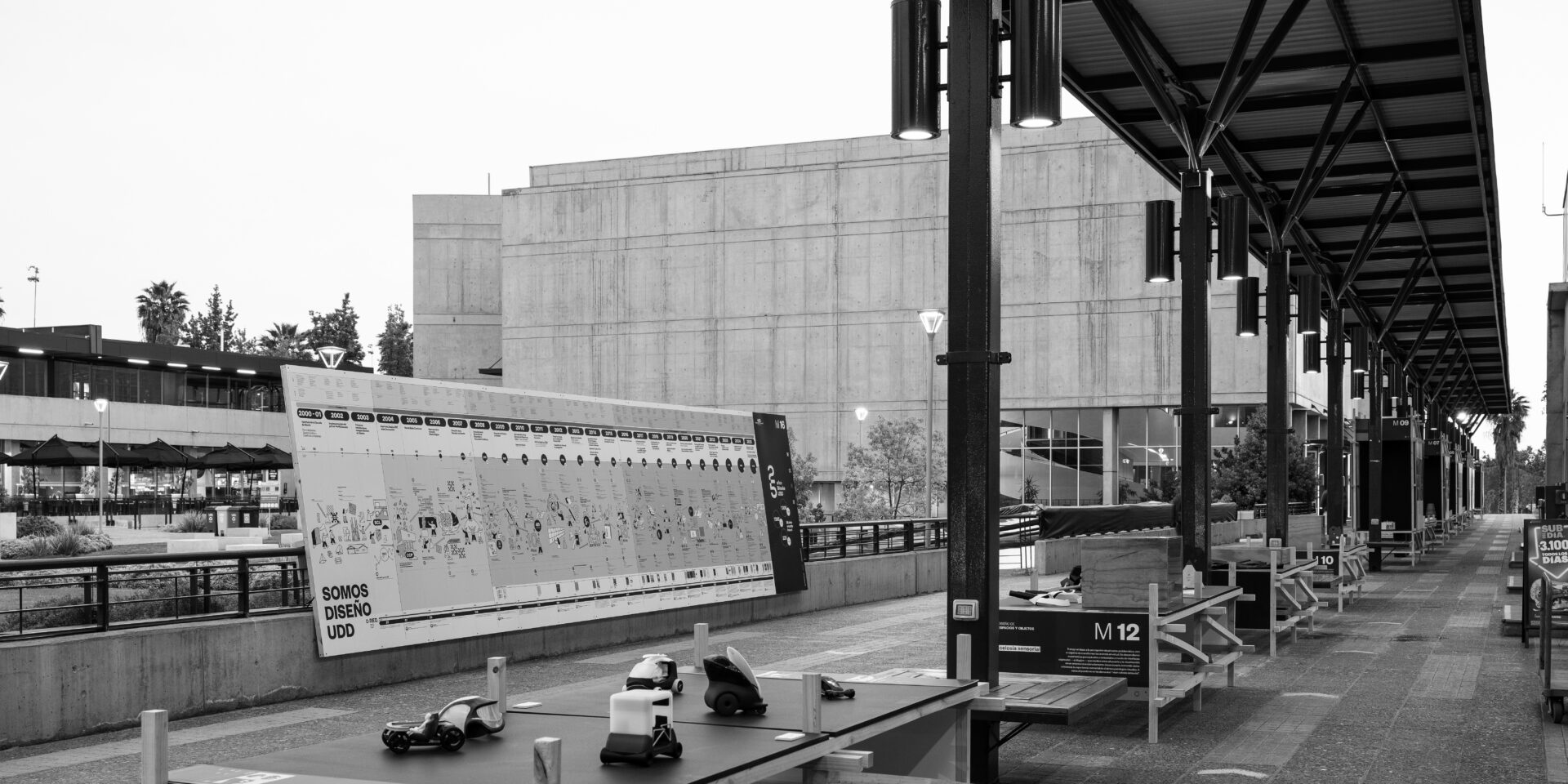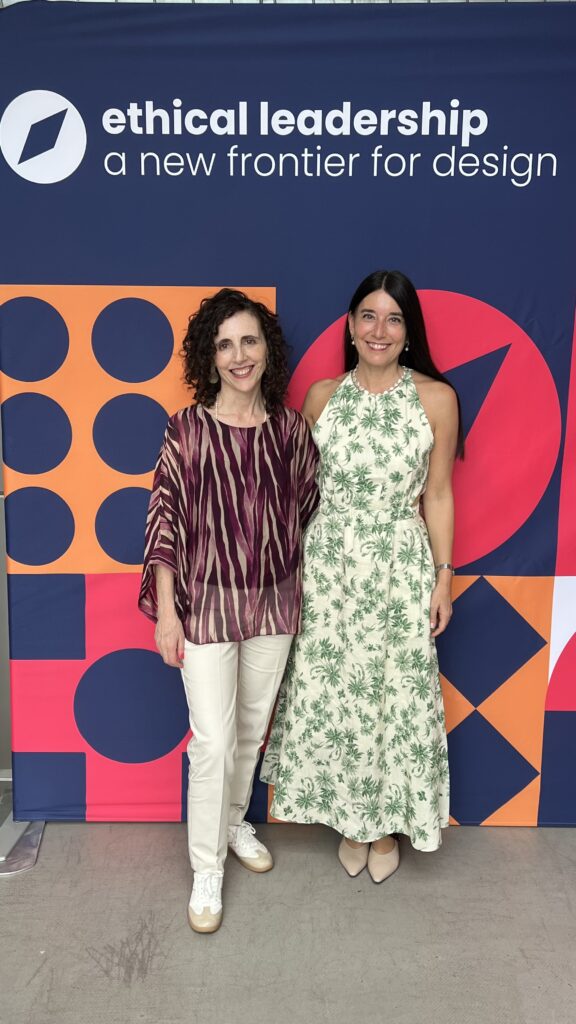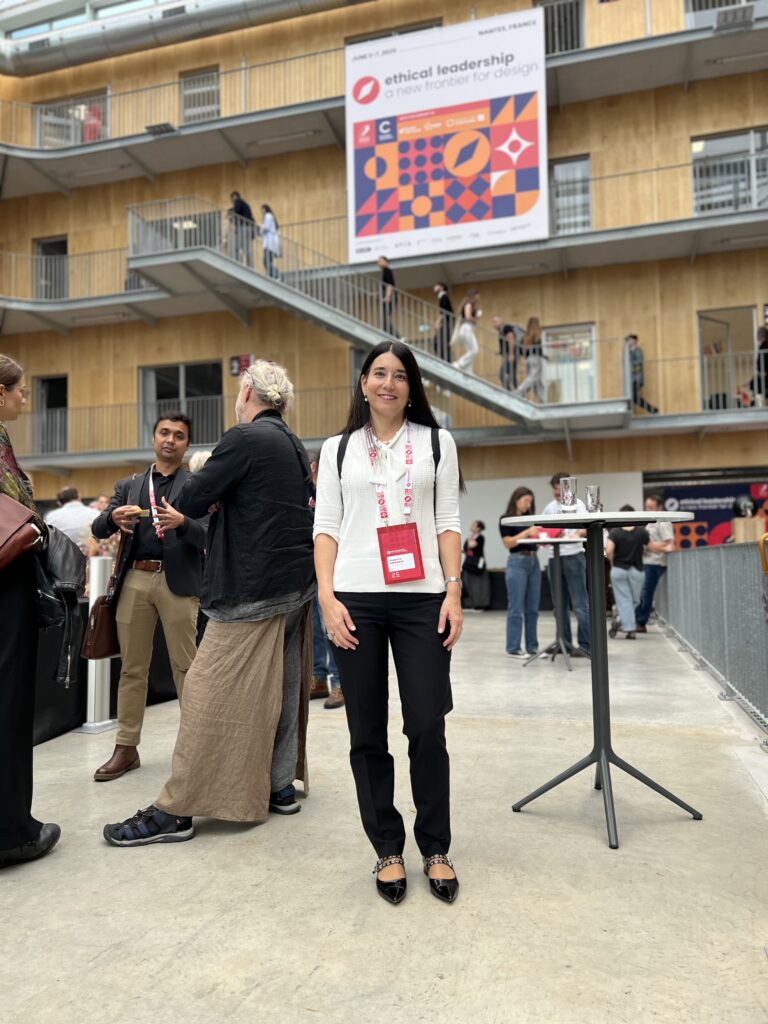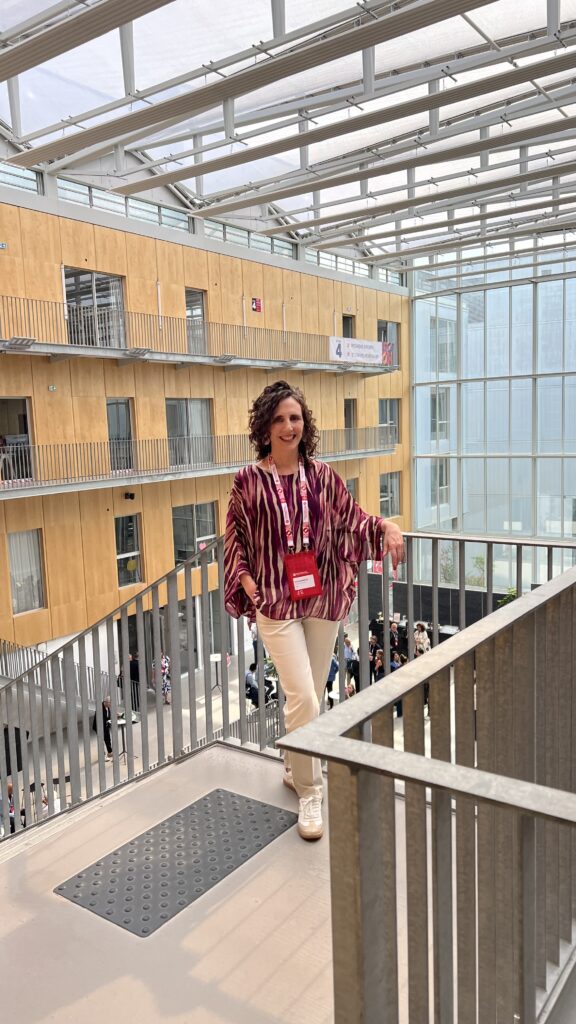
The event gathered over 400 participants from 70 different countries.
Our Dean, Alejandra Amenábar, and the editor of Base Diseño e Innovación, Úrsula Bravo, travelled to the city of Nantes, France, to take part in the Cumulus Conference. This edition focused on the theme: “Ethical Leadership: A New Frontier for Design.”
At the event, the editor of Base presented highlights from the magazine’s most recent editions: “Design, Health, and Well-being” (2023) and “Biodesign and Nature-Inspired Innovation” (2025).

Dean Alejandra Amenábar emphasized the importance of attending Cumulus, noting that it is one of the most important academic platforms for staying current with emerging design trends and fostering international knowledge exchange. “It’s about opening to the world and connecting with different realities. Today, design plays a key role. That’s why so many other disciplines are turning their attention to ours, recognizing its ability to address challenges in a structured and creative way.”
Regarding the visit, she highlighted that presenting the journal is a major achievement for UDD Design, as it reflects the ongoing efforts to strengthen ties with academics and researchers worldwide, while also paving the way for future collaborations. “Academics from leading universities in Europe and Asia were impressed by the quality of our publication. This is a clear sign that we’re on the right track and doing things well,” stated Bravo.


Cumulus Design Declaration 2025
Another key highlight of this edition was the Cumulus Design Declaration 2025. This international manifesto calls for a profound rethinking of design practices towards a regenerative, inclusive, and planet-centered approach.
“It’s no longer just about designing for human beings, but with and for all living systems. Design is becoming a political, ethical, and deeply collective act,” stated Lorenzo Imbesi, president of the Cumulus Association and professor at Sapienza University of Rome.
The declaration is structured around five key commitments:
• Shifting from sustainable design to regenerative design.
• Embracing radical inclusivity grounded in solidarity and social justice.
• Fostering transdisciplinary collaboration in response to technological disruptions (AI, biotechnology, posthuman futures).
• Decolonizing practices and valuing vernacular and ancestral knowledge.
• Promoting an ethics of care, empathy, and peace in design practice.
The 2025 edition of Cumulus coincides with the 35th anniversary of the world’s largest network of design, art, and media schools. The event brought together nearly 500 participants from 70 countries.